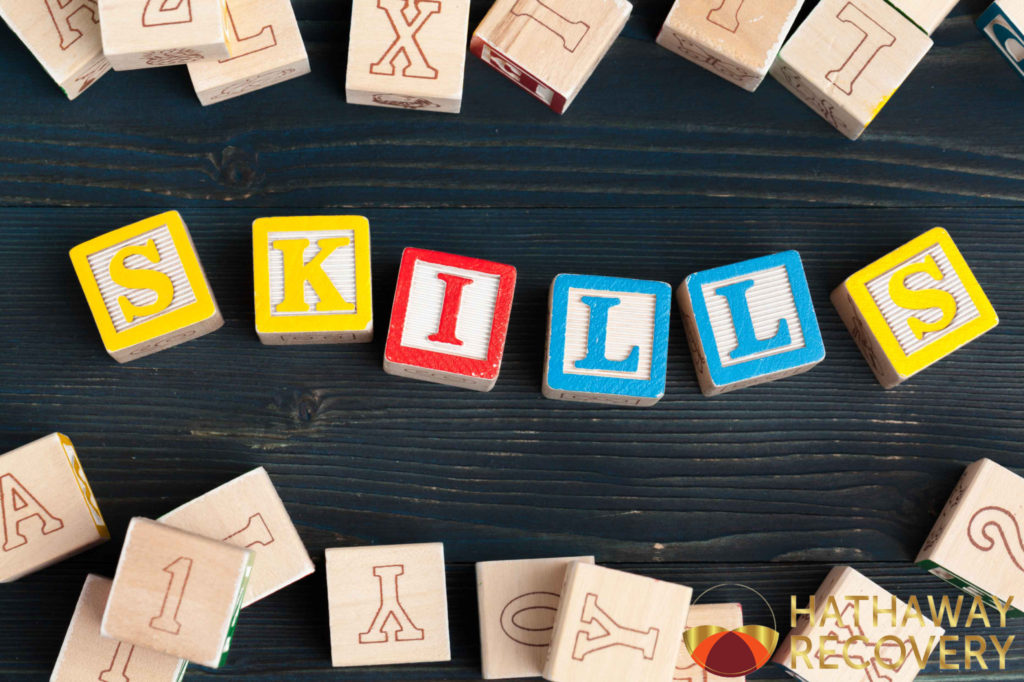To live a happy, healthy life in recovery, it is important to have coping skills that prevent relapses. These coping skills can be learned one day at a while to help prevent relapses and lead a life that is beyond their wildest imaginations.
Recovery from addiction to alcohol or other drugs involves personal growth and milestones. There is always the possibility of relapsing at any stage of your recovery. This makes it essential to learn and practice relapse prevention skills and relapse prevention training. Relapse is most commonly caused by:
- Boredom
- Stress
- Money problems
- Relationship issues
- Some sights and smells
- Some people or certain places
- Relapse into old habits
- Anger
Relapse prevention techniques and relapse prevention therapy are conducted at most alcohol and drug treatment centers. Clients learn these techniques to help them maintain their recovery and reach long-term goals. To prevent relapse there are many relapse prevention strategies that one can incorporate into their daily life.
It is common to believe that relapse prevention skills can only be used when needed. Relapse prevention activities must be incorporated into every recovering person’s daily routine and schedule to reduce or prevent cravings.

These are the top ten relapse prevention strategies:
1. Self-Care
Insomnia and fatigue are common symptoms of post-acute withdrawal after overcoming addiction. These are potential triggers for relapse, according to the New York Office of Alcoholism and Substance Abuse Services.
One can improve the quality of their sleep by engaging in physical activity and eating a balanced diet. You can do this by following a sleep schedule, exercising, eating, and resting. This will help you to retrain your body to sleep better and reduce the chance of relapse.
2. HALT
HALT stands for Hungry, Angry, Lonely, and Tired. If you feel a need to use or a general sense of being anxious or “off,” ask yourself if these are symptoms. Many recovering addicts and alcoholics are most vulnerable to triggers like hunger, anger, and loneliness. Therefore, it is possible to prevent relapse by taking a regular inventory of HALT.
3. Meditation on Mindfulness
Mindfulness meditation is a method that helps people become more aware of themselves. Being more aware of ourselves helps us deal with possible relapse triggers. NCBI conducted a study that found significant improvements in the recovery of individuals who use mindfulness meditation to prevent relapse.
People who practice mindfulness meditation reported being soberer for more extended periods and having fewer cravings. They also reported greater awareness and acceptance.
Mindfulness meditation teaches participants to “roll with” their desires instead of fighting them. This practice teaches participants to accept that cravings will occur. It also teaches relapse prevention skills.
Mindfulness meditation is characterized by concepts such as acceptance, letting down personal control, using prayer and meditation, and letting go of any need to control. Jack Kornfield, the co-founder of Spirit Rock, has developed a simple mindfulness meditation practice. This involves repeating a mantra three times and then focusing on your breath.
May my heart be filled with love and kindness
May I be well
May I feel peaceful and at ease
May I be Happy
Mindfulness is about paying attention to what you are doing, where you’re, with whom you’re, and other things. You can become more mindful by simply noticing what you’re doing. To be more aware of what you are thinking, feeling, and doing, taking note of your daily activities with a smartphone can be helpful. This can provide great insight and empower you to overcome your cravings.

4. Know Your Triggers
Triggers may be either internal (anxiety and irritability) or external (people, places, or things that remind you of your past use). Creating a list is an excellent way to identify your triggers and minimize the chance of relapse.
5. Join a Support Group
Regular participation in support groups and relapse prevention groups such as Narcotics Anonymous or Alcoholics Anonymous (NA) provides accountability, education, support, and the opportunity to meet others who understand your situation. Peer support and a sponsor are essential components of recovery. This helps to prevent relapse by reducing feelings of loneliness, isolation, and other triggers that can lead to relapse.
6. Grounding Techniques
Recovery can be difficult because of anxiety and stress. Grounding techniques such as the 5-4-5-3-2-1 coping method are a great way to prevent relapse. You use the five senses to keep your attention on the present and to avoid any thoughts or feelings that could lead to an escape.
Start by taking some deep breaths and then follow the next five steps:
5. Acknowledge five things that you see around you.
4. Acknowledge four things that you can do for others.
3. Acknowledge three things that you can hear around.
2: Recognize two things that you can smell around.
1: Recognize one thing that you can taste around.
Take a deep, long breath to end the exercise. Focusing on your senses can help you increase self-awareness and mindfulness and help you achieve daily tasks. It will also help you overcome negative thoughts and feelings.
7. Deep Breathing
As you already know, breathing is central to our lives. You have much control over your life, but many people don’t realize how much. Simply changing your breathing patterns can change your life.
Your brain chemistry is affected by your breathing. Breathing has many vital functions. Your emotions and mood can be significantly influenced by breathing. Deep breathing is essential for mental health.
Deep breathing triggers neurotransmitters in the brain that can cause relaxation, happiness, pain relief, and happiness. In addition, deep breathing and the increased oxygen flow that results encourage your body’s ability to exhale toxins.
The 4×4 technique is a valuable way to breathe deep. You can take four deep, inhaling breaths through your nose. Hold the position for four seconds, and then let go.
As you breathe, your diaphragm should be moving in and out. Deep breathing can be used almost anywhere without anyone being aware.
8. Create an Emergency Contact List
It can be hard to control an urge, especially during the first recovery step. However, it is a great way to prevent relapses. First, you can list friends and family who are in recovery.
Talking to someone you trust can help you overcome the cravings and remind you why you don’t want to relapse into old behaviors. It is vital to keep this list handy at all times. Then, you can quickly call someone safe and get help.
9. You can play the tape through
Playing the tape through is a great way to get high if you feel like you want to drink or get high. It would be best to imagine the tape’s appearance until the end.
Consider what you will experience long-term and short-term if you drink or use. Think about the potential consequences of using vs. not using. This will help you make better decisions and decrease the chance of relapse.
10. Get help
Fear of relapse is a crippling fear. You don’t have to fear relapse if you have healthy relapse-prevention coping skills. These relapse prevention strategies can be incorporated into your daily routine to reduce the chance of relapse.
It is essential to recognize that relapses can happen. However, relapse is not an indication of failure. It is not an excuse to abandon sobriety. If you’re struggling to implement your coping skills for relapse prevention, it might be time to contact our team at Hathaway recovery to get advanced support.

Hathaway Recovery, a California addiction treatment center, offers healing from all substances. We are proud to provide a great combination of drug, psychiatric, and psychological recovery treatment backed by addiction experts.
Hathaway Recovery is a luxury addiction recovery treatment center that focuses on all aspects of addiction treatment. Our treatment is unique and offers the best possible care. Our luxury rehab in California provides the most comprehensive addiction treatment.
We offer private rooms, a personal approach, and the finest specialists. Our mission is to Renew, Rebuild, and Heal Lives.
If you have questions or need help with someone in need, please call our Admissions Department at (909)971-3333.
It is entirely confidential.
DON’T MISS A CHANCE TO CHANGE YOUR LIFE.
- Individual counseling
- Group counseling
- Family Drug Education
- Relapse Prevention Therapy
- Counseling for Grieving






